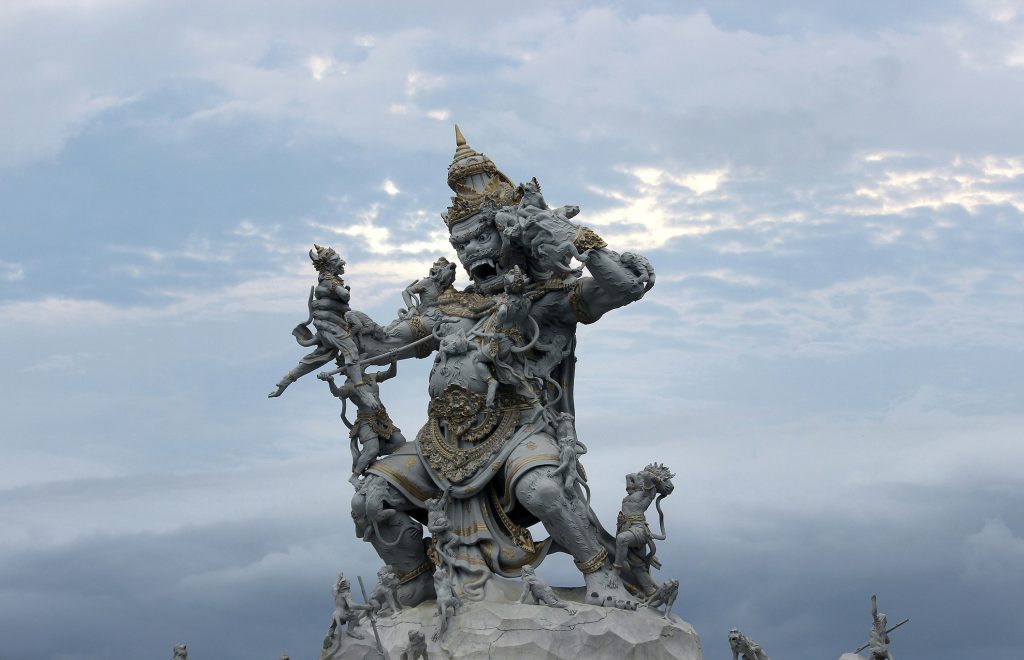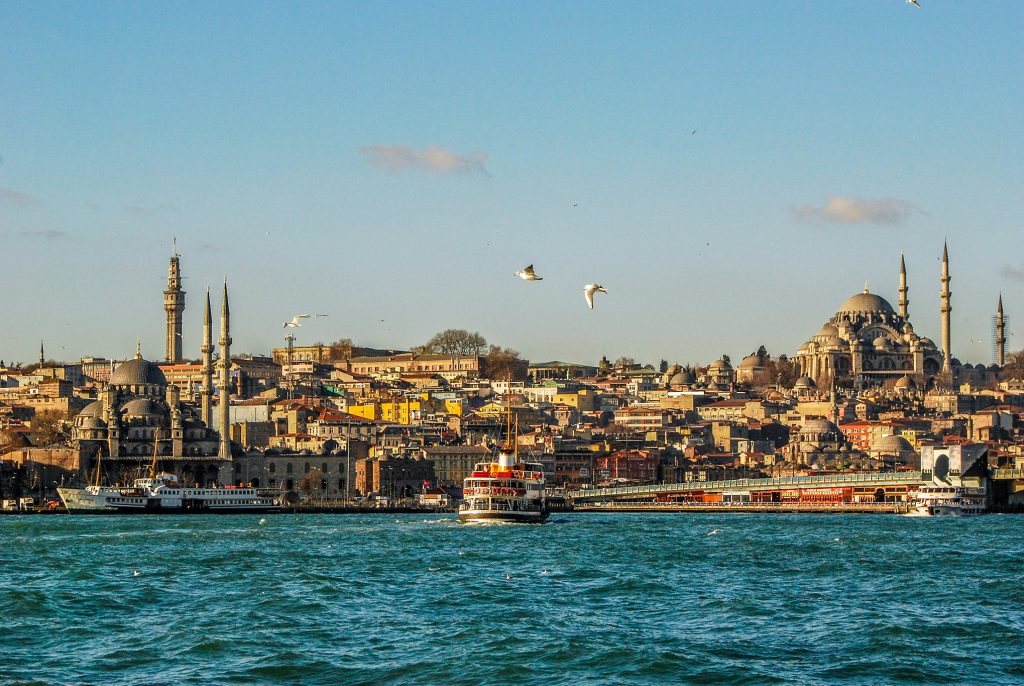Ready, Set, Jet!
BY JASNAM SACHATHEP
Someone once said, “You don’t have to be rich to travel well.” When making travel plans, there are so many costs to think about, from flights, to visa applications, to hotels – and that’s just to name a few. The timing of the trip also has a huge impact on the cost: it’s best to avoid the high season when flight prices will soar, or if that’s your preferred time to visit, then booking well in advance is the best workaround. For those that love to travel, budgeting is an important factor and forehand research of the country that you’ll be visiting has great benefits that can help control expenses.
You’ll be well-equipped with knowledge from other travellers, and learn tips and tricks that you may not have known before. Luckily, living in Thailand provides the benefit of being surrounded by so many neighbouring and nearby countries that allow for budget travelling. Without having to compromise on the experience, one can still have a completely enjoyable trip, at a reasonable cost! We’ve compiled a list of useful tips for travelling on a budget to three destinations that have become increasingly popular over the last few years.
VIETNAM
When to go: Peak season November to March; shoulder season April to June, and September to October
If you want to experience being a millionaire, Vietnam is the place to go! A beautiful country with a range of cities offering different exciting experiences, the flight time can range from 1 hour 20 minutes to a maximum of 2 hours, depending on which city you land in. Similar to Thailand in its weather and in many cultural aspects, choices in Vietnam are ample on all fronts, from food, to accommodation, to fun; and you can control the cost of your trip based on the choices that you make. A few tips to remember to avoid paying unnecessarily high prices:
- Avoid major cities: Ho Chi Minh and Hanoi are more expensive than other, smaller parts of the country, so don’t spend too much time in them or you’ll find your wallet getting lighter faster than planned! Instead, visit the hidden beauty of the small town, Hoi An, where you can find the basket boats and beautiful walking streets with lantern boats and night markets. Sapa is another famous small town that is nestled between mountains and rice fields. Here you can take treks and visit tea plantations, with tasting options too!
- Choose to eat street food: Delicious local choices like banh mi sandwiches, pho soup, bun cha (grilled pork with vermicelli noodles) and more, are all readily available and cheaper than dining in restaurants.
- Don’t be afraid to bargain: Similar to Thailand, the culture of Vietnam allows for this. Prices for foreigners are known to be inflated, so no offence is taken when you bargain. Of course, as with everywhere in the world, this should be done politely and respectfully, with no anger or aggression from either side.
- Adventure intelligently: In Vietnam, a little research can go a long way. A country rich in culture and natural beauty, thanks to its stunning coastlines and mountains, exploring can be free yet fulfilling. Many of the cities in Vietnam have beaches, walking streets, old towns, markets and heritage sites which you can explore on foot, all without a cost. Local tours run by villagers (which are super affordable) are also a good choice that bring you closer to the people and give you a glimpse into their lives.
- Accommodation choices: Hotel choices and chains are ample in Vietnam. Staying in the city centre and in the heart of all the action is of course going to cost more, so you can easily choose to stay just a little outside and pay a little less. Grab is super convenient and cheap in Vietnam, so getting around is the least of your concerns. If you’re travelling solo or with friends, then hostels are a good go to choice and if you’re visiting the local villages, then homestays are the best!
Average spending snapshot per day, according to information from previous travellers:
- THB 502 on meals
- THB 430 on local transportation
- THB 1,935 on hotels
INDONESIA
When to go: Peak season June to September; shoulder season March to May and October to November
Another country that can offer the experience of being a millionaire (at least in Rupiah, the local currency), Indonesia is mostly known for Bali, but this archipelago has so much more to offer. The flight time from Bangkok to Indonesia ranges from 2 to 5 hours depending on where you land – yes, that’s how big the country is! With over 13,000 islands to visit, there is something for everyone. A country full of culture, food and natural beauty, Indonesia is truly unique. Not to mention, Indonesia is also the only home of the Komodo Dragon, where tourists can come within a few metres of them at the Komodo National Park – a truly exhilarating, one-of-a-kind experience. If you are headed over to Indonesia, don’t forget to remember the following tips:
- Get off the beaten track: Indonesia has famous tourist spots that are well known, but if you’re on a budget, there are plenty of beautiful places to go and things to see. Avoid the mainstream tourist islands and venture to the lesser-known ones that will have more untouched beauty. Jungle treks, hikes, and waterfalls are available aplenty and have no cost. Temples and natural attractions don’t cost much (THB 30 – 180 per person) and many are even free of charge. For the more popular attractions and activities, costs can range from THB 100 to THB 700 per person, so the difference is quite vast.
- Use local transport apps: Similar to Grab, Indonesia is well known for its local transport apps Gojek and Bluebird. Used all over the country, both these apps ensure efficiency, safety and affordability. Costs are fixed, and there is no need to stress about negotiating for the price of your trip.
- Local food: Eating is an essential part of a trip and Indonesia has so many options that will satisfy both the stomach and the wallet. Local food is delicious and available everywhere in smaller cafes and ‘warungs’ that are definitely worth the dining experience.
- Haggle with a laugh: Bargaining is a norm in Indonesia, and doing so can act as a way to bond with the locals. A small phrase or joke in Bahasa gives everyone a laugh, and makes the shopping experience all that much more enjoyable.
Average spending snapshot per day, according to information from previous travellers:
- THB 574 on meals
- THB 272 on local transportation
- THB 2,260 on hotels
TURKEY
When to go: peak season May to September; shoulder season April and October
Although not close to Thailand, this is another appealing country to visit. When compared to its neighbours in the Middle East and Europe, Turkey is much more affordable. It is a country rich in culture and beauty with both mountains and beaches. A big plus point for Thai passport holders is that Turkey does not require visas. Therefore, it can serve as a potential last-minute travel option that does not require advance planning. By flight, it takes 10 and a half hours from Bangkok. A few tips to remember when travelling to Turkey:
- Book a tour: Different from Vietnam, Turkey is known for their tours and given the country’s culture, beauty and heritage, there is no better way to explore it all than with a guide and the right information. Top destinations in Turkey include Cappadocia, Pamukkale, and Ephesus, with tour options that ran ge from 2 days all the way to 14 days! The tours also include meals, making it an all-inclusive experience with no extra stress.
- Avoid staying near tourist attractions: When travelling, it is normal to find accommodation near attractions, however in Turkey, avoiding this can help you save money. Staying just a little further away but still in close vicinity can help budgeting. Instead of staying in Sultanahmet or Taksim Square, choose to stay in the next neighbourhood, Beyoglu, which is still close enough, with a 10-minute walking time to Istiklal Street and Taksim Square.
- Use local currency: As tempting as it can be to use credit cards and foreign currency in Turkey, this is not recommended. Paying in local currency, the Lira, is the best and cheapest way. However, make sure not to change any currency in the airport as those rates can be outrageous compared to in the city. The five best places to change money in Istanbul are all centrally located: Taksim Square, Istiklal Street, Sultanahmet, Beyazit, and Kapalicarsi, so remember this when you make it over there!
- Choose local transport: When travelling around, try to go with local transport options like the bus and the metro instead of taxis and private cars.
Average spending snapshot per day on past travellers:
- THB 1,255 on meals
- THB 1,828 on local transportation
- THB 4,087 on hotels










